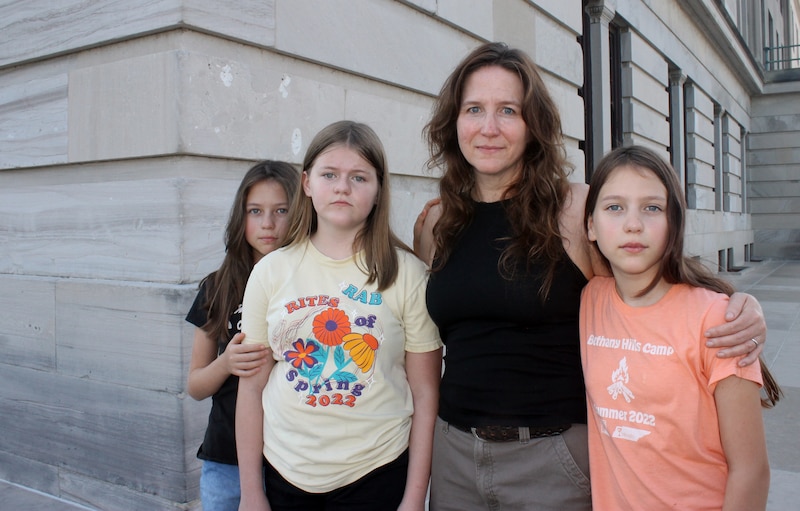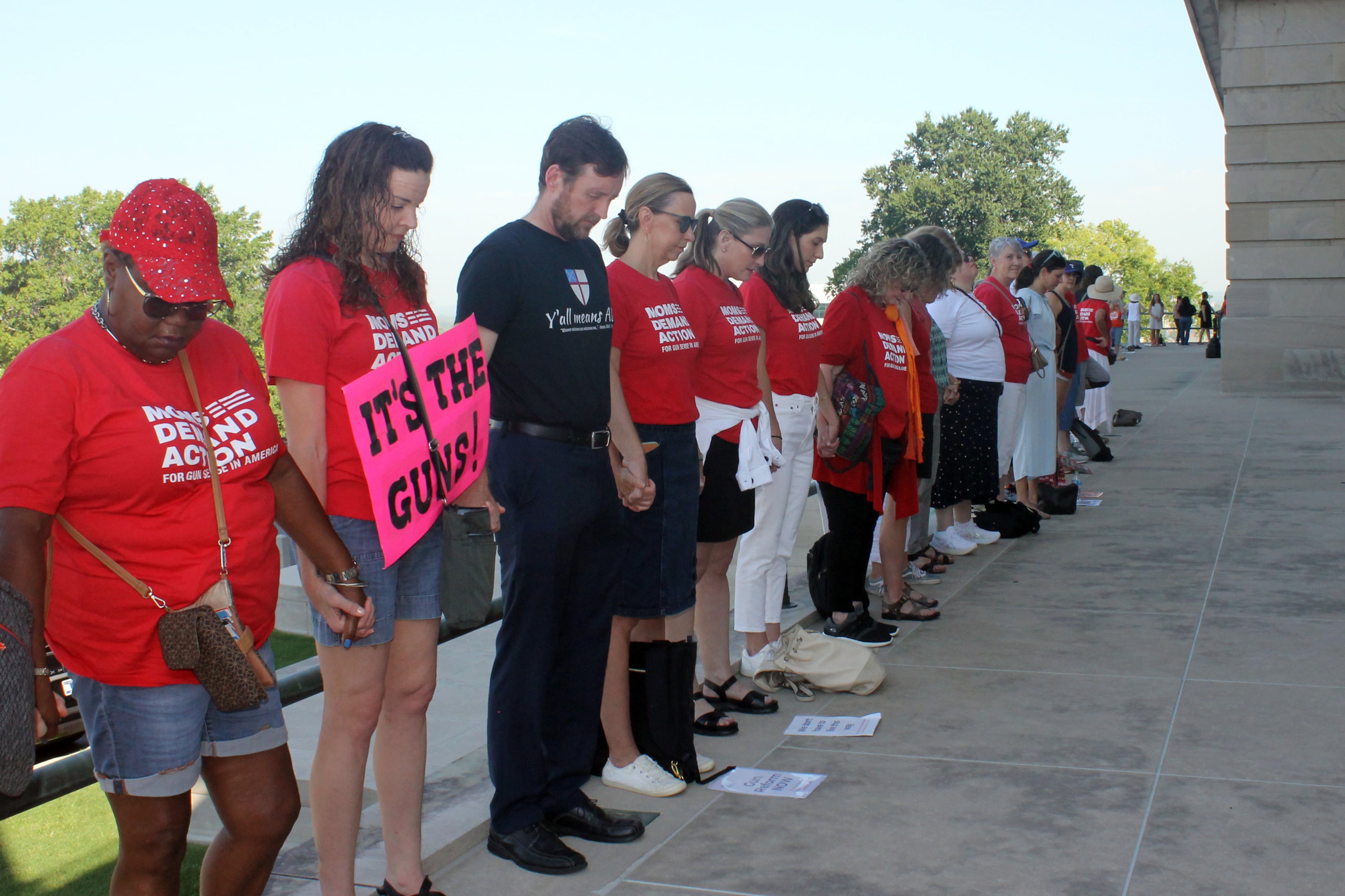As Tennessee lawmakers and lobbyists returned to the state Capitol Monday to discuss guns and public safety, 12-year-old student Juliette Dominguez showed up too, in hopes that her perspective would make a difference.
Fresh from two days of classroom instruction on how to respond if an armed intruder breaks into her school, Juliette was frustrated that Tennessee is focusing on preparing school communities to defend themselves from people with guns — instead of taking action to restrict gun access from people at risk of hurting themselves or others.
“Why is this something that children should have to worry about?” asked Juliette, a seventh grader in Goodlettsville, north of Nashville.
Gov. Bill Lee called the special legislative session in response to a school shooting in Nashville in which three 9-year-old children and three adults were killed. The session is expected to last a week.
But any drive to tighten Tennessee’s gun laws has been squelched by a Republican supermajority in one of the nation’s most gun-friendly states, even as a recent poll of Tennessee voters showed significant bipartisan support for various gun regulations.
More than a hundred bills have been filed based on Lee’s official proclamation identifying 18 potential topics, from school safety to juvenile justice to mental health. But Lee’s proclamation never uses the word “gun,” and it mentions “firearms” only in relation to measures that would encourage safe storage of weapons, but with no new penalties allowed.
The House also passed new rules Monday in response to the body’s dramatic expulsion in April of two Democratic members for the way they protested the body’s failure to pursue significant gun reforms this spring. Under the changes, Speaker Cameron Sexton can suspend recognition of members for escalating amounts of time if he determines they are disrupting legislative business, speaking off topic, or impugning another member. The rules also limit the number of people allowed in the chamber’s galleries, as well as the nearby rotunda.
“The rules that are being put forward now are to limit freedom of speech,” said Rep. Justin Pearson of Memphis, who was expelled and then reelected in a special election this month. “With these rules, you are silencing our constituency.”
Lee called lawmakers back after acknowledging that the March 27 attack on The Covenant School confounded many elements of Tennessee’s school safety policies, including a sweeping plan that Lee had proposed just weeks earlier to require all K-12 public schools to keep their exterior doors locked, among other things.
Eventually, the legislature increased funding to further fortify both public and private schools but rejected the governor’s late proposal for a law allowing authorities to temporarily remove guns from people having a mental health emergency.
Gun control advocates, who held mass demonstrations after the tragedy and while lawmakers were in their regular session, returned to the Capitol as lawmakers prepared to start the special session, even as Nashville police recommended that people avoid the downtown area this week if possible.
At the invitation of a coalition of Christian groups, hundreds of people, including Juliette and her family, encircled the stone building in the morning to pray for passage of meaningful gun restrictions.
“I’m tired of people saying there’s nothing we can do, because we seem to be able to do things about everything else,” said Juliette’s mother, Jen. “We’re quick to yank books off of library shelves, or limit how students can dress. Why are guns impossible?”

Meanwhile, a group of parents of surviving students at The Covenant School endorsed 10 bills that they said offer a start. They praised proposals to beef up school safety plans but said there’s an urgent need for new laws to keep guns out of the hands of people having a mental health crisis and for the state to provide more mental health care. They also criticized several bills that could allow teachers to be armed in school.
“As the spouse of an educator and the child of a retired educator, I am acutely aware, especially this time of year as we head back to school, of the heavy demands and lack of margins many of our teachers currently have,” said David Teague, the parent of two children at The Covenant School. “We should not add armed security guard to their list of extracurriculars.”
The Covenant School serves about 200 students in preschool to sixth grade. The six people killed there were students Evelyn Dieckhaus, Hallie Scruggs, and William Kinney, all age 9; and three school staff members: custodian Mike Hill and substitute teacher Cynthia Peak, both 61, and Katherine Koonce, 60, the head of the school.
Authorities said the 28-year-old shooter was seeing a doctor for an “emotional disorder” and had legally obtained multiple weapons.
Marta Aldrich is a senior correspondent and covers the statehouse for Chalkbeat Tennessee. Contact her at maldrich@chalkbeat.org.






